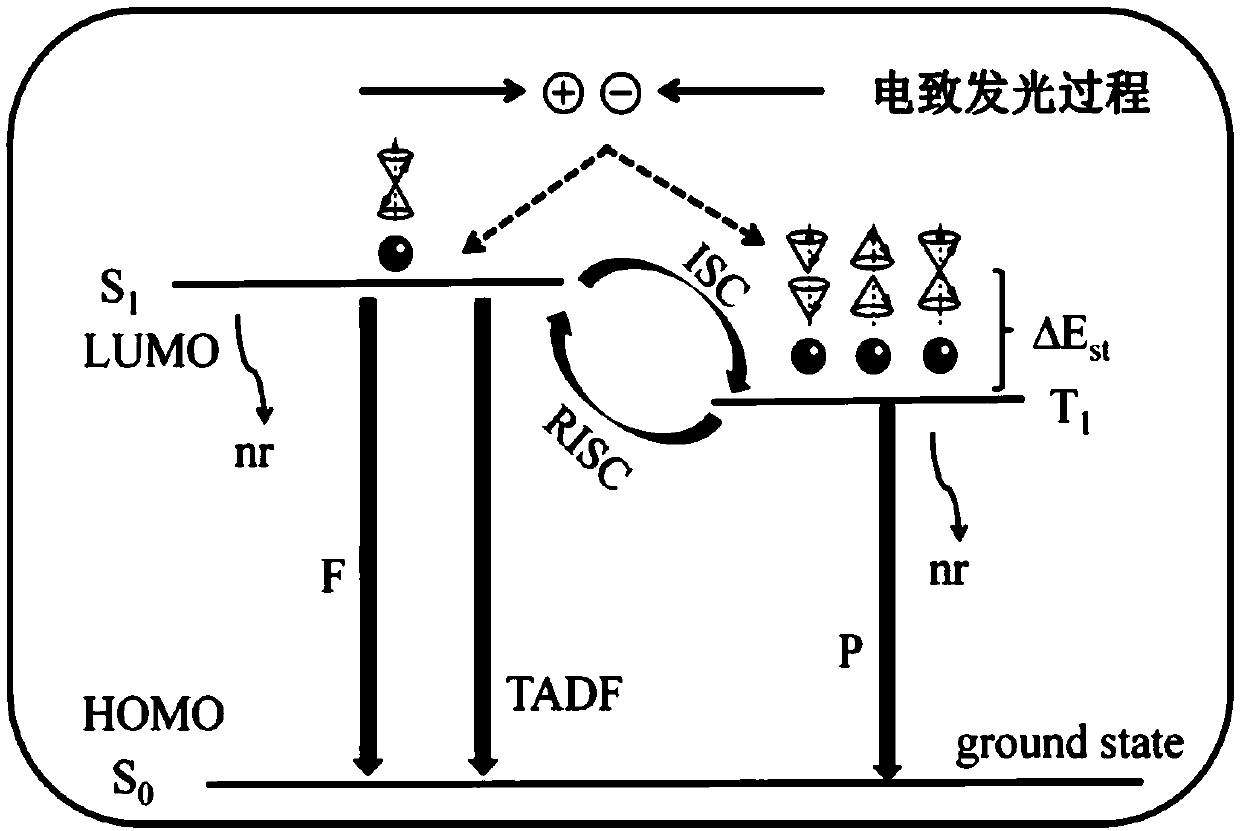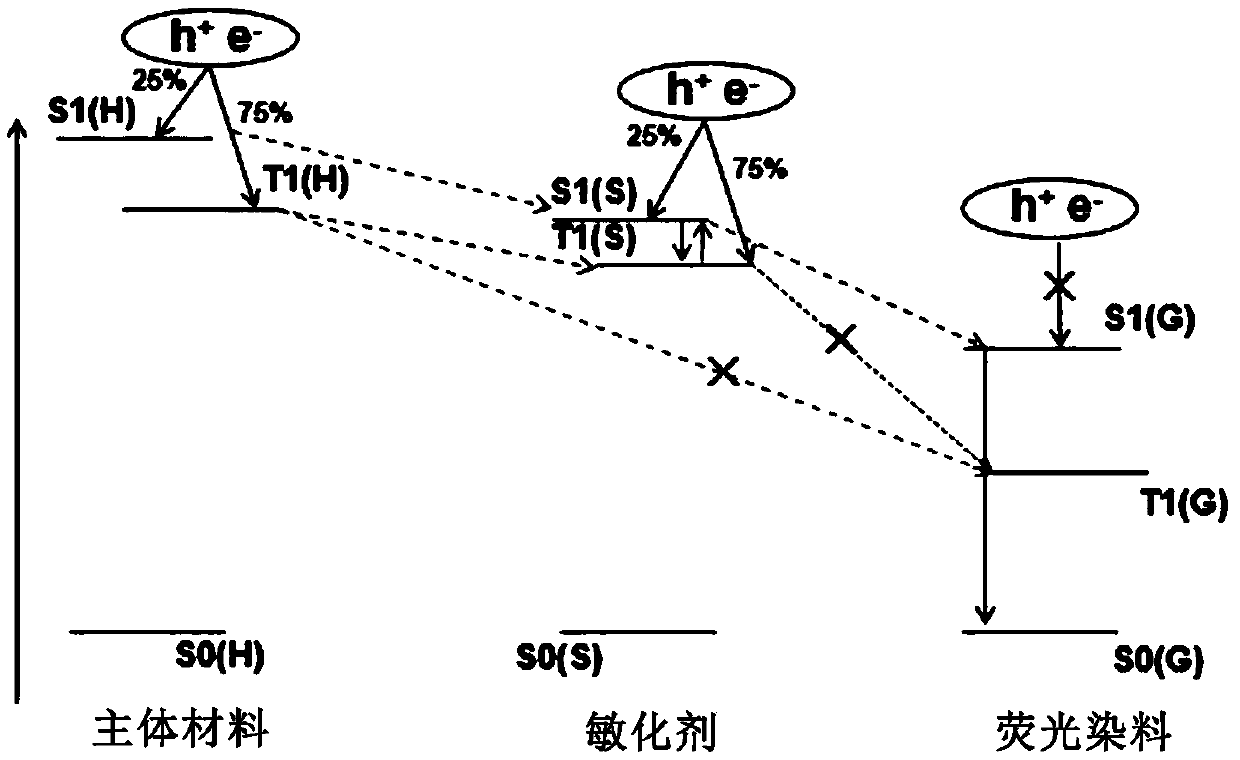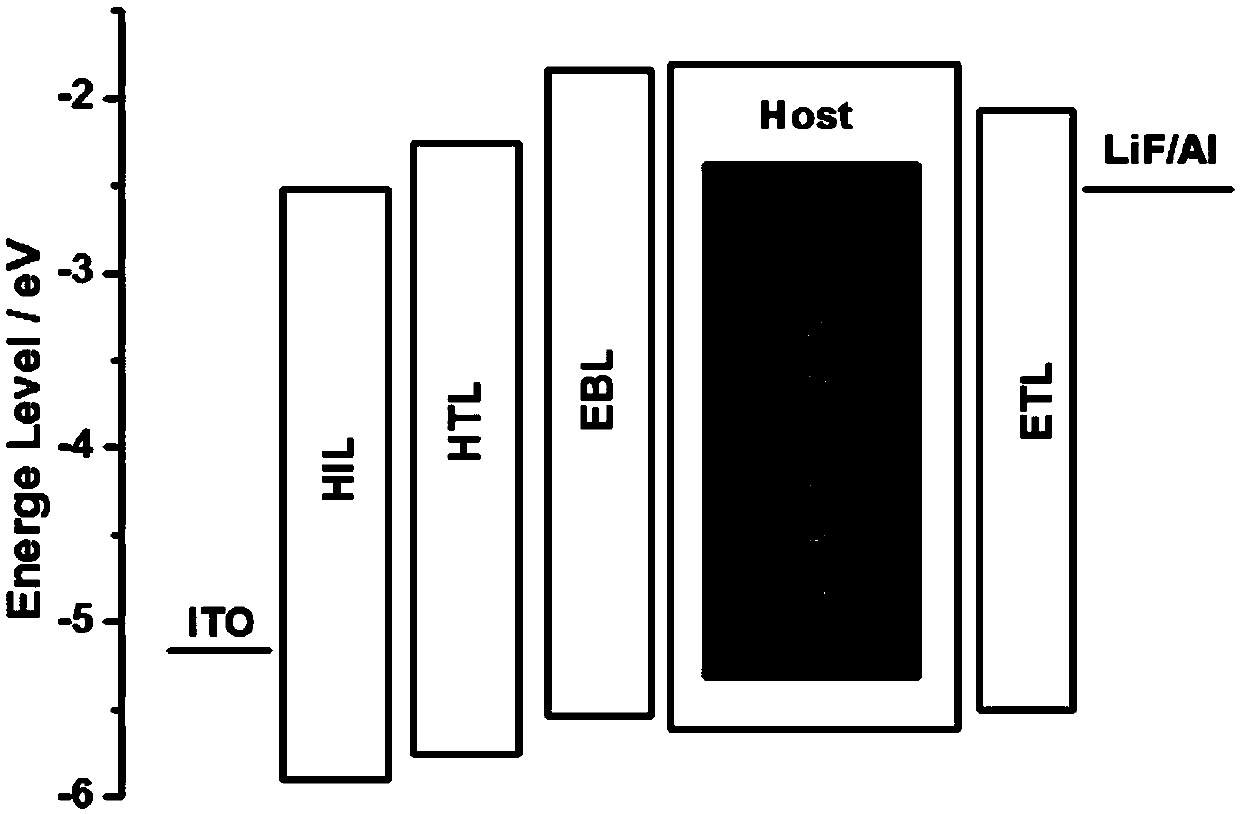Organic electroluminescence device and display device
An electroluminescent device and electroluminescent technology, which are applied in the direction of electro-solid devices, electrical components, semiconductor devices, etc., can solve the problems of short life and low luminous efficiency of devices, achieve good performance, good transmission performance, improve luminous efficiency and The effect of service life
- Summary
- Abstract
- Description
- Claims
- Application Information
AI Technical Summary
Problems solved by technology
Method used
Image
Examples
Embodiment 1-10
[0062] Such as image 3 As shown, each of Embodiments 1-10 provides an organic electroluminescent device, which successively includes an anode, a hole injection layer (HIL), a hole transport layer (HTL), an electron blocking layer (EBL), and an emission layer (EML). , electron transport layer (ETL), electron injection layer (EIL) and cathode.
[0063] The device structure of embodiment 1 is ITO / HATCN (10nm) / NPB (40nm) / electron barrier (5nm) / host: 30%T-6:5%F-8 (30nm) / TPBI (30nm) / LiF (1nm ) / Al(200nm).
[0064] The device structure of Examples 2-10 is basically the same as that of Example 1, the only difference lies in the materials and / or doping concentrations of the light emitting layer and the electron blocking layer.
[0065] In the organic electroluminescent devices provided in Examples 1-10, the specific selection and doping concentration of materials for the light-emitting layer and the electron blocking layer, and the test results of the corresponding organic electrolum...
Embodiment 11-14
[0080] Such as image 3 As shown, Examples 11-14 respectively provide an organic electroluminescent device, the device structure is basically the same as that of Example 1, the difference is only that the doping concentration of the sensitizer in the light-emitting layer is different, and the specific concentration of the sensitizer in the light-emitting layer is different. The doping concentration and the test results of the corresponding organic electroluminescent devices are shown in Table 3.
[0081] table 3
[0082]
[0083] From the test results in Table 3 combined with Table 2, it can be seen that as the doping concentration of the TADF material used as a sensitizer in the light-emitting layer changes, the luminous efficiency and service life of the corresponding OLED device also change accordingly. In comparison, when the doping concentration of the TADF material in the light-emitting layer is 10-50 wt%, the OLED device has relatively better luminous efficiency and...
Embodiment 15-18
[0086] Such as image 3 As shown, Embodiments 15-18 respectively provide an organic electroluminescent device, the device structure is basically the same as that of Embodiment 2, the only difference lies in the thickness of the electron blocking layer. Table 4 shows the thickness of the electron blocking layer in Examples 15-18 and the test results of the corresponding organic electroluminescent devices.
[0087] From Table 4 and in conjunction with the test results of the aforementioned Examples 1-14, it can be seen that when the light-emitting layer uses TADF material as the sensitizer, and the electron blocking layer contains TADF material, as the thickness of the electron blocking layer changes, the luminous efficiency of the OLED device and service life have changed. When the thickness of the electron blocking layer is 1-50nm, the luminous efficiency of the OLED device is relatively high and the service life is relatively long, especially when the thickness of the electr...
PUM
| Property | Measurement | Unit |
|---|---|---|
| Thickness | aaaaa | aaaaa |
| Thickness | aaaaa | aaaaa |
| Thickness | aaaaa | aaaaa |
Abstract
Description
Claims
Application Information
 Login to View More
Login to View More - R&D
- Intellectual Property
- Life Sciences
- Materials
- Tech Scout
- Unparalleled Data Quality
- Higher Quality Content
- 60% Fewer Hallucinations
Browse by: Latest US Patents, China's latest patents, Technical Efficacy Thesaurus, Application Domain, Technology Topic, Popular Technical Reports.
© 2025 PatSnap. All rights reserved.Legal|Privacy policy|Modern Slavery Act Transparency Statement|Sitemap|About US| Contact US: help@patsnap.com



